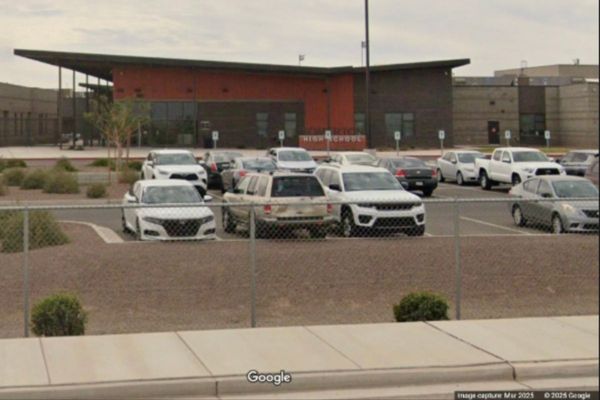Turkey agreed to a five-day cessation of hostilities on Thursday in its ongoing conflict against a Kurdish-led militia in Syria’s northeast, despite lingering questions about whether the United States-brokered deal would be sustainable or receive the blessing of Russia.
Donald Trump hailed what he described as a “great day for civilisation” hours after Mike Pence had announced a 120-hour ceasefire following negotiations between the United States and Turkey. It gave Kurdish fighters along the border a chance to retreat deeper into northern Syria.
During an impromptu press conference shortly after the announcement on Thursday, Mr Trump heaped praise on Turkish president Recep Tayyip Erdogan, even as Turkish officials cast doubt on the American claims of a meaningful ceasefire.
“I just want to thank and congratulate president Erdogan. He’s a friend of mine and I’m glad we didn’t have a problem because, frankly, he is a hell of a leader and a tough man, a strong man,” Mr Trump said. He had tweeted following Mr Pence’s press conference to brag about taking “a necessary, but somewhat unconventional, path”.
Mr Pence had announced the 120-hour ceasefire to allow Kurdish forces to leave the area, and claimed that the military offensive would ultimately end after those Kurds had left.
“We have agreed to a ceasefire in Syria," Mr Pence said. "The Turkish side will pause Operation Peace Spring in order to allow for the withdrawal of YPG forces from the safe zone for 120 hours. All military operations ... will be paused, and Operation Peace Spring will be halted entirely upon completion of the withdrawal,” he added, referring to an acronym used to describe the People’s Protection Units, the leading faction within the Syrian Democratic Forces (SDF), a largely Kurdish militia that has been an ally of the United States.
He continued, during an appearance alongside secretary of State Mike Pompeo: “Once that is completed, Turkey has agreed to a permanent ceasefire and the United States of America will work with Turkey — will work with nations around the world — to make sure peace and stability are the order of the day in this safe zone.”
The deal represents a big political win for Mr Erdogan, staving off Congressional sanctions while getting the US to agree to a safe zone it has long wanted. He will probably exploit the sight of two top US officials coming to his capital to work out a deal to bolster his own credibility internationally.
But many questions remain and experts doubted the durability of the halt in violence. For one thing, it remained wholly unclear whether the SDF had agreed to the deal, or whether Moscow, which has emerged as the principal power broker in Syria, has acceded to it. A few days ago Russia brokered a deal between the Syria regime in Damascus and the SDF to allow uniformed army forces to take control of the border.
Shortly after the ceasefire was announced, SDF Chief Commander General Mazloum was quoted as saying that fighting was continuing in the region where it had been agreed that it would stop.
He said his forces had agreed to the ceasefire, but discussions needed to take place about stopping the fighting in other regions because there should “be no demographic changes”.
“What this means for the SDF is ultimately in Russia’s hands,” Nick Danforth, a Turkey expert at the German Marshall Fund, said.
The Syrian regime sees Turkey as its greatest threat, and is unlikely to agree to allow any permanent Turkish presence on its soil, and to lobby its patrons in Moscow to reject the deal.
The 13-point agreement includes guarantees by Turkey to ensure the safety and well-being of civilians inside the zone it is to control, and designates the Turkish armed forces to “primarily” enforce the safe zone, ignoring the presence of tens of thousands of Ankara-backed Arab armed groups that Turkey uses as its surrogates and who have been responsible for most of the human rights abuses in parts of Syria under Turkish control.
The agreement was announced following a four-hour meeting between Mr Pence and Mr Erdogan, and comes after Mr Trump removed American forces from northern Syria. That withdrawal has allowed Turkey to begin a military offensive in the region, imperilling US-backed Syrian Kurds who played an important role in fighting back against Isis.
Shortly after the ceasefire announcement, Turkish officials insisted that the sole purpose of the pause was to allow the Kurdish-led forces to leave their posts.
“We will suspend the Peace Spring operation for 120 hours for the PKK/YPG to withdraw. This is not a ceasefire,” said Turkish foreign minister Mevlüt Çavuşoğlu. “A pause of Turkey’s operation in Syria is not a ceasefire, ceasefire can only be declared between two legitimate parties.”
The US president’s decision to withdraw American forces from northern Syria led to bipartisan criticism in Washington, including denunciations from prominent supporters of Mr Trump’s like the senator Lindsey Graham.
And, as reports of the devastation of the Turkish attacks began to come in — including concerns that Isis prisoners held in captivity had escaped — a bipartisan vote in the House officially criticised Mr Trump’s decision. That vote was carried by 354 votes to 60, with roughly two-thirds of Republicans in the House joining the Democratic majority. At least two Belgian Isis fighters are among those said to have escaped from Kurdish prisons, according to NBC News, and it is unclear how many more may have escaped.
Shortly after the ceasefire was announced by his vice president, Mr Trump claimed an unambiguous victory on the subject, even as it remained unclear what fate would befall the Kurds in northern Syria should they refuse to leave the region.
“This deal could NEVER have been made three days ago. There needed to be some “tough” love in order to get it done. Great for everybody. Proud of all!” the president tweeted.
In a separate tweet, he said: “This is a great day for civilisation. I am proud of the United States for sticking by me in following a necessary, but somewhat unconventional, path. People have been trying to make this ‘deal’ for many years. Millions of lives will be saved. Congratulations to ALL!”
But analysts said that Mr Trump’s decisions on Syria were guided almost exclusively by domestic politics. Mr Danforth said: “The real question is how this will play in Washington and whether it will provide cover for blocking Congressional sanctions to make it look like a win and to mitigate the political fallout from Trump’s original decision.”







